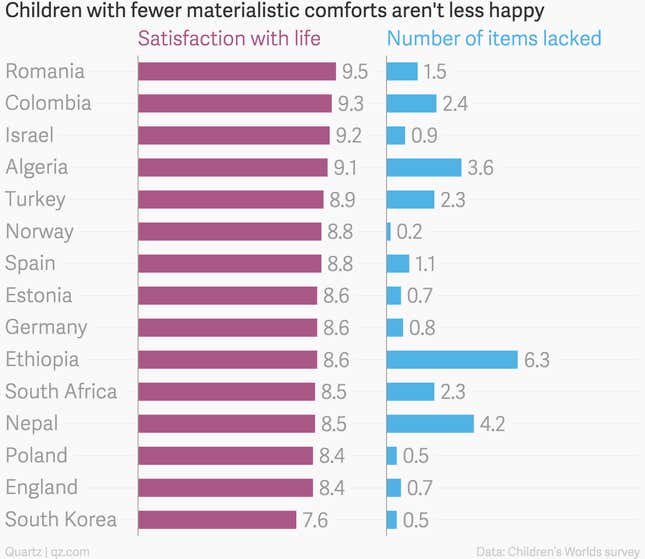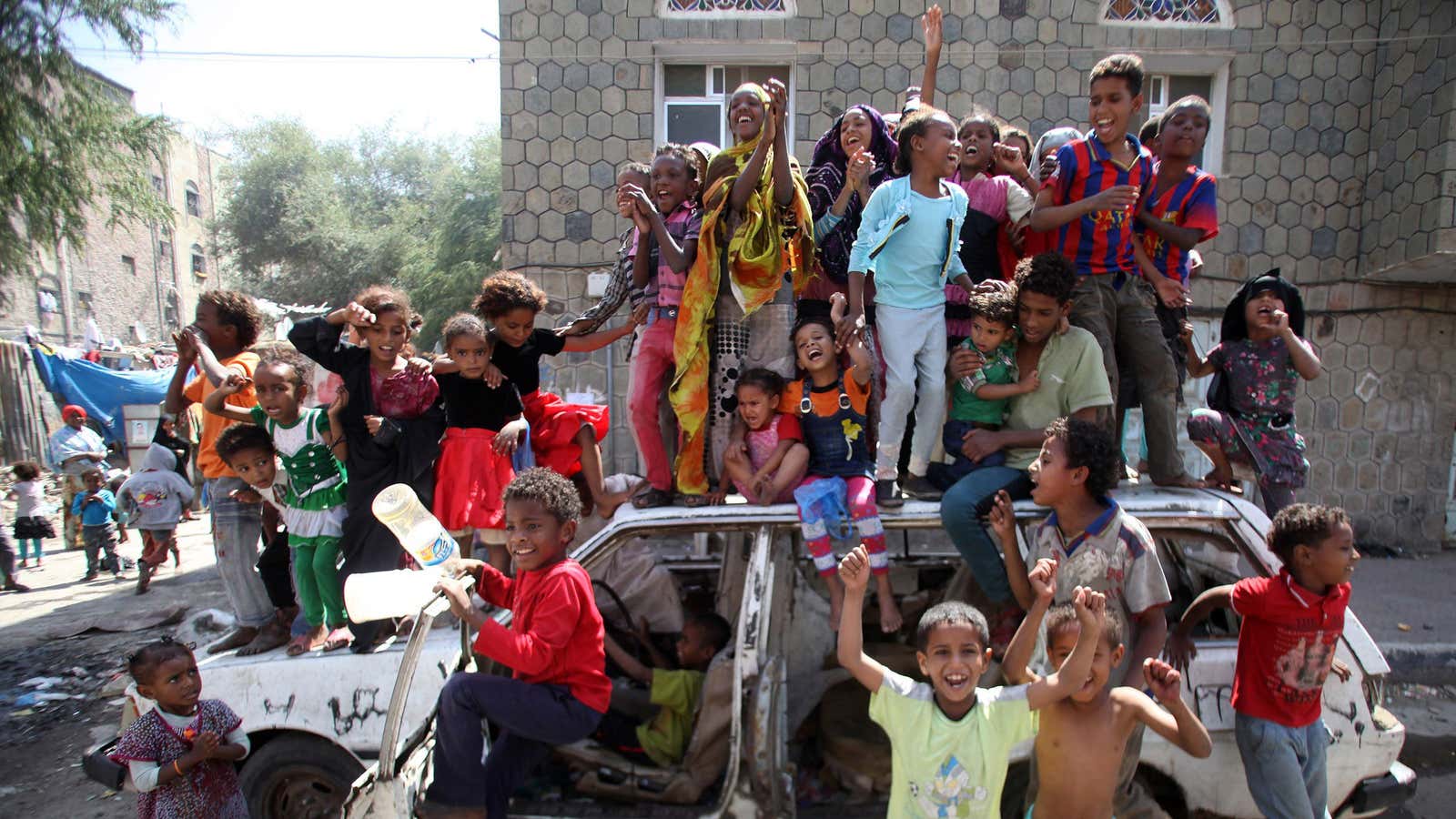A new survey of 53,000 children across 15 countries reveals that children tend to be happy regardless of the context of their lives. From Nepal to Norway, children between the ages of 10 and 12 say that they are largely satisfied with their lives (pdf).
“Children tend to be more optimistic in life,” Elisabeth Backe-Hansen, the Norwegian lead researcher for the Children’s World Survey, told Quartz. Though not surprising, it is reassuring.
When asked whether these children had access to nine things—good clothes, a computer, internet access, a mobile phone, their own room, books, a family car, a music player, and a TV—children in Norway on average had access to all of them but those in Ethiopia had access to only three. And yet, across the 15 countries, there was no correlation between how satisfied children were and how many material goods they lacked:

However, the material deprivation seems to catch up eventually. If you compare the relative rankings of children’s reported happiness with their grown-up counterparts (pdf), the results change significantly.
“Why Romanian 10- to 12-year-olds do so well compared to all the other countries we surveyed is a bit of a mystery,” Jonathan Bradshaw of the University of York, one of the survey’s lead organizers, told Quartz. “Other studies on 13- to 15-year-olds in Romania don’t show such positive results. So perhaps the older Romanians get, the less happy they become.”
The case for South Koreans is the opposite. Korean children, despite having access to most material goods, seem to be unhappier than adults. This finding reaffirms previous surveys, which claim that the country’s highly competitive academic environment is a much bigger burden than elsewhere in the world.
There is also a noteworthy difference in the nature of of kids’ carefree attitudes in rich and poor countries. Despite being generally happy, children in developed countries were relatively less satisfied with their body, appearance, and self-confidence.
